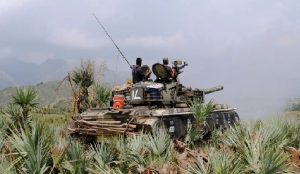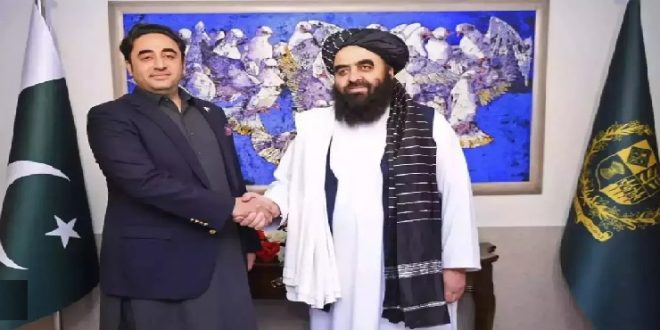15-01-2025
ISLAMABAD/ NEW DELHI/ KABUL: When the Taliban took over Kabul in August 2021, then-Prime Minister of Pakistan Imran Khan famously said the Afghan group had “broken the shackles of slavery” as they returned to power for the first time since 2001.
 Taliban’s ascension was seen as a boost to the regional influence of Pakistan, long regarded as the patron of the Afghan group in pursuit of “strategic depth” for Islamabad.
Taliban’s ascension was seen as a boost to the regional influence of Pakistan, long regarded as the patron of the Afghan group in pursuit of “strategic depth” for Islamabad.
This doctrine reflected Pakistan’s military interest in maintaining a strategic hold over Afghanistan through the Taliban and using it as leverage against India, its traditional adversary. Three years later, that calculation appears to have flopped, instead leaving Pakistan’s officials fuming at ties with Kabul even as the Taliban edges closer to an unlikely partner: India.
India’s Foreign Secretary Vikram Misri met acting Afghan Foreign Minister Amir Khan Muttaqi in Dubai last week, marking the highest-profile public engagement between New Delhi and the Taliban. That meeting followed a series of steps taken by both sides that suggest a dramatic break from a quarter century of animus and distrust rooted in Pakistan’s support of the Taliban.
If this shift leads to an expansion of Indian influence in Afghanistan, that could strain Islamabad-Kabul ties, warned Iftikhar Firdous, co-founder of The Khorasan Diary, a portal tracking regional security issues. “Ultimately, the Afghan people, reliant on Pakistan’s borders, will bear the brunt of this tug-of-war,” he told Al Jazeera.
Old friend, new partner
From the 1980s when it backed the mujahideen against the Soviet Union through the first two decades of the 21st century, Pakistan was a primary backer of the Taliban, many of whose leaders found shelter on Pakistani soil.
 India, by contrast, viewed the group as a Pakistani proxy, shuttering its embassy in Kabul after the Taliban first came to power in Afghanistan in 1996. It blamed the Taliban and its current allies in the government, including the Haqqanis, for repeatedly attacking Indian diplomatic missions in Afghanistan, the embassy in 2008 and 2009, and the Indian consulates in Jalalabad in 2013, Herat in 2014 and Mazar-i-Sharif in 2015. Yet, a decade later, those equations no longer stand.
India, by contrast, viewed the group as a Pakistani proxy, shuttering its embassy in Kabul after the Taliban first came to power in Afghanistan in 1996. It blamed the Taliban and its current allies in the government, including the Haqqanis, for repeatedly attacking Indian diplomatic missions in Afghanistan, the embassy in 2008 and 2009, and the Indian consulates in Jalalabad in 2013, Herat in 2014 and Mazar-i-Sharif in 2015. Yet, a decade later, those equations no longer stand.
December 2024 saw Pakistan and Afghanistan exchanging strikes on each other’s territories, as Pakistan faced its deadliest year of violence, particularly against its law enforcement, since 2016. Pakistan said it was targeting Afghan bases of the Pakistan Taliban armed group, known by the acronym TTP, which Islamabad accuses the Afghan Taliban of harboring.
Meanwhile, India appeared to have recalibrated its approach, engaging diplomatically with Taliban officials.
The first significant meeting took place in Kabul in November 2024, when JP Singh, joint secretary of India’s Ministry of External Affairs overseeing the Afghanistan, Pakistan and Iran desk, met acting Afghan Defence Minister Mullah Mohammad Yaqoob. A week later, the Taliban nominated Ikramuddin Kamil as their envoy to New Delhi, even though India is yet to formally recognise the current rulers of Kabul and after last week’s meeting between Misri and Muttaqi, the Ministry of Foreign Affairs described India as a “significant regional and economic partner”.
‘Geography does not change’
Some Pakistani analysts say Islamabad has no reason to worry at least yet.
Asif Durrani, a former Pakistani special representative to Afghanistan, said that Pakistan and Kabul share a relationship deeper than what New Delhi and Kabul share. “India left Afghanistan after the Taliban takeover and has now returned upon assessing mutual business opportunities. (Al Jazeera)
 Pressmediaofindia
Pressmediaofindia




